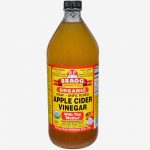Debunking All The Lies About Canola Oil
Dr. Maxwell Nartey
Professor of Symptometric Science, American School of Symptometry, NFP
World Center for Health Education and Scientific Enlightenment
It is said that canola oil causes cancer because it continues to be extracted with hexane. This is absolutely not true. I would let the facts speak for themselves, and these facts can easily be verified in a credible oil laboratory.
Oils are in seeds, and in nuts. Some tree bark, rhizomes, and leaves do also have oil. However, to extract oils on a large scale without losing their intrinsic properties, hexane must be used. Why hexane?
Hexane (C6 H14) is a multipurpose compound that extracts oil under controlled temperature and pressure, and also, serves as a high-velocity solvent and cleaner. These are three sterling qualities for the price of one.
It is because hexane performs three highly-demanding functions simultaneously that it reduces the oil extraction cost by millions of dollars, thereby allowing some of the savings to be immediately passed on to the consumer. This explains why high-value oils such as canola oil, safflower oil, etc. are affordable.
The oils or products that oil companies are using hexane to extract are:
- Soy
- Corn
- Canola
- Safflower
- Sunflower
- Cotton
- Flax, and
- Shea butter.
The cancer controversy
Let me take a moment to share the scientific facts that you may not be aware of. Smog is a big concern and it is not hexane that causes it. It is rather the distilleries, the car manufacturers, the gas-extracting companies, the wood burners, tire burners, forest fires, the diesel fuel burners, etc. that spew the following into the atmosphere:
- Sulfuric acid
- Aluminum nitride
- Aluminum sulfide
- Aluminum halides
- Sulfur dioxide
- Nitrogen dioxide
- Silicon dioxide
- Sulfur trioxide
- Nitrous oxide
- Methane
- Hydrofluorocarbons and dozens more
Carbon dioxide and nitrogen already abound in the atmosphere, but when all these atmospheric pollutants from human and industrial activities combine with carbon dioxide and nitrogen, they cause smog.
It is the smog that damages the ozone to allow the UV rays to cause skin cancer in individuals who do not have HDL in their skin. Compared to over 300 atmospheric pollutants from diesel fuel burners, gas extractors, etc. hexane is infinitesimal. The ozone was already damaged, and hexane played no part in this damage.
The EPA (Environmental Protection Agency) investigated the claims that hexane causes cancer, and it found no shred of truth in this bogus claim. This was why EPA allowed the users of hexane to continue to use it to extract shea butter and many vegetable oils. The EPA closed its hexane studies years ago. Unfortunately, the EPA’s conclusions and recommendations were not made public. This is why ignorant and uninformed individuals continue to beat their drums on the Internet.
Let me at this point share what was never shared with the public, and this is unfair.
The reason hexane is excellent for extracting oil is, 1) it recovers all the fatty acids in oil easily and faster 2) it has a low boiling point (63 – 69 degrees C or 153 degrees F – 156. 2 degrees F) compared to the other vegetable oils 3) its solubilizing property is excellent. As a result, it makes the extracted oil produce fewer lipid peroxides when heated and 4) it also allows the extracted oils to retain their therapeutic properties, especially canola oil.
The boiling point of water is 212 degrees Fahrenheit. This is far higher than the hexane-extracting temperature. The boiling point of crude oil is in excess of 1000 degrees Fahrenheit and the boiling point of soybean oil is 572 degrees Fahrenheit. If Symptometry does not recommend soy oil, it is because its boiling point makes the person who eats food that was cooked or fried in soy oil more susceptible to lipid peroxidation.
Additionally, canola oil has only 7% saturated fat compared to olive oil which has 80% saturated fat. Do you want to know why olive oil predisposes a person to stroke? You need not look any further. You now have the facts. It causes too much lipid peroxidation.
It was the politics of vegetable oil in the 1960s that projected olive oil in a more favorable light and demonized canola oil. It is all about unfair business practices. Nothing else.
Yes, it is true that canola oil is a hybrid oil (rapeseed and mustard seed), but it is equally true that it has only 7% of saturated fat, compared to olive oil, natural oil, which has 80% of saturated fat. Also, canola oil causes less lipid peroxidation.
Natural does not necessarily mean the product is healthy, safe, or cell friendly. There are boobytraps in many natural products. Therefore, buyers beware, and users be alert.
Canola oil has received bad press for decades, and this is not fair, especially when the facts are on its side. I am a Symptometry researcher looking for the total truth wherever I can find it.
The canola oil corporation does not know me, and I do not know the barons of canola oil. I am just sick and tired of seeing an excellent oil being knocked down and pummeled left and right, especially, by people who have absolutely no research credibility.
Let us go to the lab. The machines do not know me as a White man, Black man, short man, or tall man. Just throw the different oils into the machine, one oil at a time, and wait for the analysis. This is what makes chromatography an excellent independent arbiter that allows truth to prevail.
© Copyright 2023, The American School of Symptometry, NFP. No part of this publication may be reproduced or transmitted in any form or by any means, electronic or mechanical, including photocopying, recording, or by any information storage and retrieval system without the written permission of The American School of Symptometry, NFP. Library of Congress copyright number Txu 1-621-370, Washington D.C.

 Previous Post
Previous Post Next Post
Next Post

